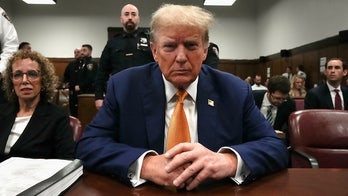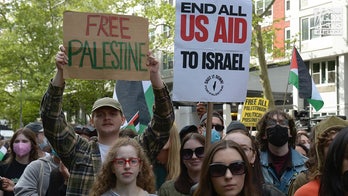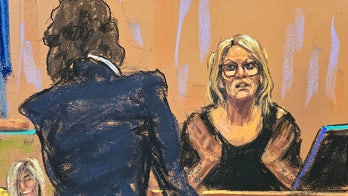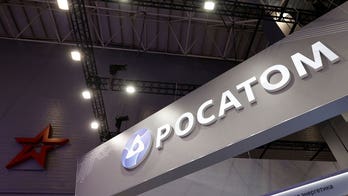UPDATE:
The White House, for the second time in as many days, sought to clarify long-running reports in Colorado that it tried to discourage former Colorado House Speaker Andrew Romanoff from challenging its preferred candidate, appointed Sen. Michael Bennet in the Aug. 10 U.S. Senate primary.
Clarifying an earlier statement released late Wednesday, the Office of the Press Secretary said Romanoff "applied for a position at USAID during the Presidential transition. He filed this application through the Transition on-line process."
The White House said after President Obama was sworn into office, Romanoff "followed up by phone with White House personnel."
The statement continues: "(White House Deputy Chief of Staff) Jim Messina called and emailed Romanoff last September to see if he was still interested in a position at USAID, or if, as had been reported, he was running for the US Senate. Months earlier, the President had endorsed Senator Michael Bennet for the Colorado seat, and Messina wanted to determine if it was possible to avoid a costly battle between two supporters."
"But Romanoff said that he was committed to the Senate race and no longer interested in working for the Administration, and that ended the discussion. As Mr. Romanoff has stated, there was no offer of a job," the statement said.
Romanoff first acknowledged the White House maneuvering yesterday in a statement and then in a brief encounter with reporters. He released the e-mail sent to him by Messina (see below, they were part of his statement released Wednesday).
Romanoff met briefly with reporters in Longmont, Colo., after a campaign stop.
----------------------------------------------------
REPORTER Q &A TRANSCRIPT:
Romanoff: "He (Messina) suggested three positions that might be available to me or not to pursue the Senate race and he e-mailed me descriptions of those positions that day. I informed him that I was not going to change course."
Q:"Why didn't you speak up earlier?"
Romanoff: "I did not want, I do not want to politicize this matter. In the meantime it's pretty clear a great deal of misinformation has emerged and that serves no useful purpose."
Last night, the White House first publicly acknowledged the Romanoff job talks in a brief statement released by Deputy Press Secretary Bill Burton.
"Mr. Romanoff was recommended to the White House from Democrats in Colorado for a position in the Administration. There were some initial conversations with him but no job was ever offered."
Romanoff is currently trailing Bennet, who is seeking to win the seat he was appointed to by Democratic Gov. Bill Ritter after President Obama tapped Sen. Ken Salazar to serve as his Interior Secretary.
----------------------------------------------
On Wednesday, Romanoff released a statement.
----------------------------------------------
ROMANOFF STATEMENT:
"I have received a large number of press inquiries concerning the role the White House is reported to have played in my decision to run for the U.S. Senate. I have declined comment because I did not want – and do not want – to politicize this matter.
A great deal of misinformation has filled the void in the meantime. That does not serve the public interest or any useful purpose.
Here are the facts:
In September 2009, shortly after the news media first reported my plans to run for the Senate, I received a call from Jim Messina, the President’s deputy chief of staff. Mr. Messina informed me that the White House would support Sen. Bennet. I informed Mr. Messina that I had made my decision to run.
Mr. Messina also suggested three positions that might be available to me were I not pursuing the Senate race. He added that he could not guarantee my appointment to any of these positions. At no time was I promised a job, nor did I request Mr. Messina’s assistance in obtaining one.
Later that day, I received an email from Mr. Messina containing descriptions of three positions (e-mail attached). I left him a voicemail informing him that I would not change course.
I have not spoken with Mr. Messina, nor have I discussed this matter with anyone else in the White House, since then."
Romanoff attached this e-mail from Messina to his statement. The three government positions are listed here:
From: Messina, Jim (e-mail address redacted)
Date: Fri, Sep 11, 2009 at 3:24 PM
Subject:
To: Romanoff, Andrew (e-mail address redacted)
Deputy Assistant Administrator for Latin America and Caribbean, USAID
As one of five geographic bureaus in the Agency and as a major contributor to the broader U.S. foreign policy objectives in the region, the Bureau for Latin America and Caribbean (LAC) promotes stable democracies, prosperous economies, secure borders, and cooperative neighbors in the Western Hemisphere. The LAC Bureau is taking a proactive approach to maximizing the impact of foreign assistance and continuing its efforts to transform and improve business operations that support Agency-wide reforms. In line with the new Foreign Assistance Framework, priorities include consolidating democracy, fostering growth through free trade and business opportunities, investing in people through education and health, and enhancing security by promoting alternatives to illegal drug cultivation. Additionally, the Bureau is implementing a number of highly visible programs in the Western Hemisphere, including support for the Dominican Republic-Central American Free Trade Agreement (DR-CAFTA); the Andean Counter-Narcotics Initiative; the Global Fund to Fight Aids, Tuberculosis, and Malaria; and the recommendations for the Presidential commission for Assistance to a Free Cuba.
This position reports to the Assistant Administrator for Latin America and the Caribbean. The position functions as advisor to the
Assistant Administrator, LAC. The position is responsible for oversight and general management of one or more LAC Bureau offices.
Director, Office of Democracy and Governance, USAID
The Director is the chief operations officer of the Office and a principal advisor to senior Bureau and USAID management in defining the scope and objectives of the Agency's and the Administration's initiatives to support democracy and foster good governance. Activities of the Director include oversight for all staffing and personnel functions in the Office, as well as oversight of technical officer recruitment, selection, and placement, and direct supervision of the senior democracy and governance advisors for the Agency. The Director provides program definition, design and oversight, and evaluation for USAID's democracy and good governance programs and serves as a senior advisor in the administration for developing democracy and good governance program strategies. The Director supports democracy and good governance programs in all parts of the Agency and leads in the development of strategic approaches to democracy support and good governance.
The Director represents the Agency at the senior level with other U.S. Government departments and agencies, with senior officials of foreign governments, with senior political officials from host countries, and with senior officials of U.S. implementing organizations. This position reports to the Assistant Administrator for Democracy, Conflict and Human Rights (DCHA).
Director, U.S. Trade and Development Agency (USTDA)
USTDA was first created as part of USAID through the Foreign Assistance Act of 1961 and made independent in 1991. Their stated mission is to “advance economic development and U.S. commercial interests in developing and middle-income countries.” Unlike Ex-Im , OPIC and other international development agencies, USTDA does not directly finance exports and development. Instead, the agency seeks to achieve its mission by making small grants to fund feasibility studies, reverse trade missions, conferences, trainings, and other technical assistance programs that link U.S. companies to overseas development projects. With a budget of $55.2 million (FY 2010) and a staff of 78 professionals (48 full-time, 25 contractors and 5 foreign-service nationals), USTDA’s success is dependent on being able to seek out new opportunities, leverage its private and government relationships, and find development opportunities for both private business and larger federal foreign assistance/development agencies. A testament of USTDA’s success is its ratio of grant dollars spent versus dollars in exports created, which is nearly 1:35. This position requires Senate confirmation
--------------------------------------------------




